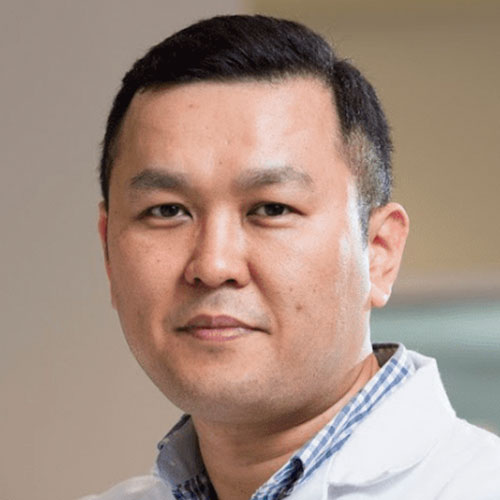2021 Irené Ferrer Awardee, Monash University, Australia

Dr. Joohyung Lee, Hudson Institute – Centre for Endocrinology and Metabolism, Lecturer, School of Clinical Sciences at Monash Health. Dr Lee received his PhD from The University of Melbourne and the Florey Neuroscience Institutes, in the area of neuroscience and pharmacology. He then worked as a Parkinson’s Society Canada Research Fellow at the Toronto Western Hospital in Canada, to investigate the role of abnormal synaptic plasticity in Parkinson’s disease. He returned to the Florey Neurosciences Institute to investigate the neural mechanisms underlying Parkinson’s disease and drug addiction, before joining the Hudson Institute in 2008. Dr Lee’s research focuses on sex differences in brain function in normal and diseased states. In particular the research laboratory is focusing on the potential role of the male sex-determining gene SRY in the sex differences in neurological diseases, such as Parkinson’s disease, attention-deficit hyperactive disorder (ADHD) and autism. He has a strong interest in understanding the role of the Y-chromosome gene SRY and the male brain and how abnormal regulation of SRY may increase the susceptibility of males to neurological disorders such as Parkinson’s disease and ADHD.
Awarded: $85,000
What Dr. Joohyung Lee studying?
Doctor Lee is studying the influence of the male gene, Y, on the development of brain function, behavior and immune function. He is specifically interested in the impact of male sex on the development and severity of Parkinsonism.
What is Parkinsonism?
Parkinsonism is a broader term that refers to a group of neurological conditions that cause movement symptoms similar to those seen in Parkinson’s disease — such as tremor, stiffness (rigidity), slowness of movement (bradykinesia), and balance problems.
Why study Parkinsonism?
Cases of Parkinsonism are expected to surpass 25 million by 2050-a 76% increase from 2021. The disease is more frequent in men. The total annual cost reached 53 billion dollars in 2017; projections suggest U.S. costs will exceed $79 billion by 2037.
What did Dr. Joohyung Lee find?
Doctor Lee found that lowering the sex determining gene on the Y chromosome (SRY) improved the symptoms and slowed disease progression in rats. The levels of SRY were particularly high in the brain of diseased animals; moderating the immune system in humans may prove a useful therapy for patients with this disorder.
How did The Foundation for Gender-Specific Medicine’s grant help Dr. Joohyung Lee’s research?
The foundation grant supported early data that provided the ground work for larger scale function from governmental and philanthropic organizations. Pharmaceutical companies are now testing SRY targeting in the treatment of patients with Parkinson’s disease.
What is Dr. Joohyung Lee’s current status?
Dr. Lee currently works at the Hudson Institute at the Centre for Endocrinology and Metabolism at Monash University in Australia.
